LONDON — The Spectrum Radio Network has completed a move to new studios in the center of the United Kingdom’s capital city.
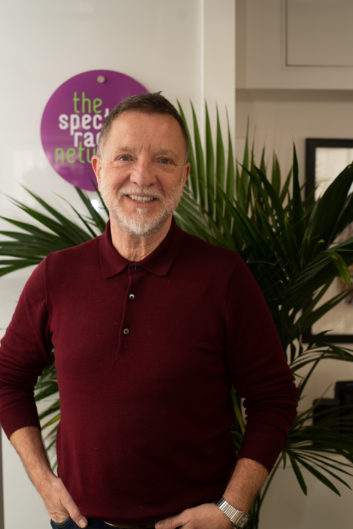
Launched in 1990 as a multiethnic radio station broadcasting to London on 558AM, Spectrum has recently relocated as part of a plan to transform its business. “We now see ourselves as a facilities provider to anyone who wants to broadcast to London, the U.K. or any other territories” says its network director, John Ogden.
“We’re all broadcasters ourselves here, so we know what stations want — that’s economies of scale and a clear path to getting on air. It means you don’t have to worry about sourcing studios, internet connectivity or disaster recovery.”
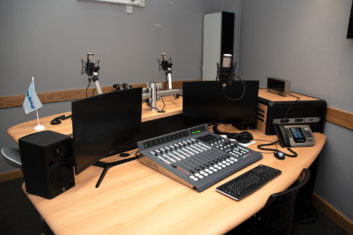
CENTRAL LOCATION
Ogden explains the need for the move from its former location in Battersea, a southwest London suburb, to the new location on the South Bank, close to Shakespeare’s Globe Theatre and the Tate Modern art gallery. “Being in central London now means we are more attractive to staff, clients and advertisers. We were becoming restricted in how we could expand — we needed to take our technology to the next level. The move gives us much more flexibility to create something that really ticks all the boxes.”
Spectrum’s seven studios are currently home to 12 stations, including U.K. services Fix Radio, which targets tradespeople and those working in the construction sector in London and Manchester, and Love Sport Radio, alongside Middle Eastern broadcasters and the Russian pop station, Radio Baikal. Spectrum also has its own channel on the Switchdigital London 2 DAB digital radio multiplex, carrying a range of global broadcasters. The network’s staff include Arabic, Mandarin, Cantonese and Spanish speakers.
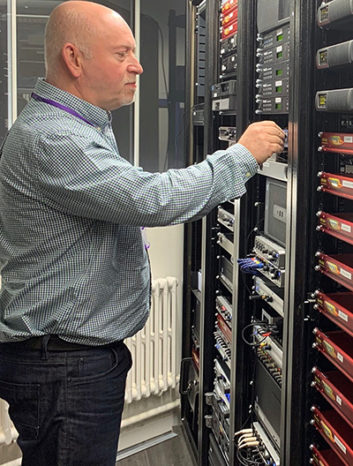
Moving these services to a new home meant the network needed a clear map of what was required. Security was a critical consideration, says Ogden: “I needed to be able to say to clients that we have gold-standard connectivity. We had to have a series of fail-over systems in place to keep stations on air and give peace of mind that nothing is going to compromise their broadcast.”
Ogden praises the network Head of Broadcast Operations Paul Miller, for transforming the facility into what he calls a “world hub.”
“What Paul’s created with this architecture is something that just works.” This included overcoming some unusual challenges — for Middle Eastern stations broadcast in the U.K., Miller had to devise a way of including the Azan call to prayer at the correct time for listeners in London. The answer was unique software, which looks at the phases of the moon to calculate the daily prayer times.
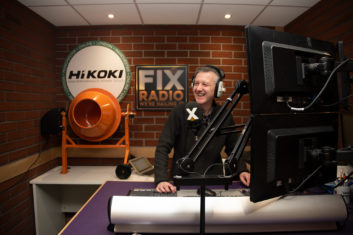
It then automatically fades the broadcast at the Middle Eastern timings, covering it with other content, and inserts the Azan at the correct times for London. Ogden says: “it’s a highly sensitive maneuver for such an important part of the programming.”
THE GEAR
The new studios feature a range of equipment covering different client requirements. From Axia, this includes iQ mixers, Pathfinder software, and xNode IP audio interfaces. Sonifex products include S2 mixers, RB-DA6 distribution amplifiers, plus silence detectors and profanity delay units. The facility also uses Electro-Voice RE20 microphones and Broadcast Bionics PhoneBOX software. One studio features a custom system installed by the Italian broadcast company Axel Technology, including its Oxygen 3000 mixer.
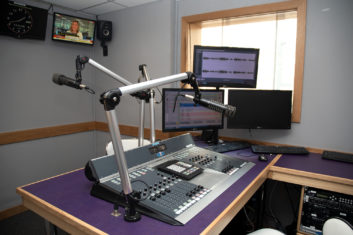
Spectrum also uses the ISDN replacement service ipDTL for simple, low-cost remote broadcasts. Miller reports one client station, Love Sport Radio, used the IP streaming service for recent broadcasts from Madrid: “The presenter had the ipDTL software on his phone with an IK Multimedia iRig interface — I have to say it was really reliable.”
To support the move, Spectrum rebuilt its spectrumradio.net website, with a new look and logo, and is also branching into the fast-growing podcast world. “Our first new offer as a facilities provider is to make highly professional podcasts,” explains Ogden. “At any one time there’s now over 700,000 podcasts out there — so quality is really important. We can advise on editing and uploading to whichever channels clients prefer.”
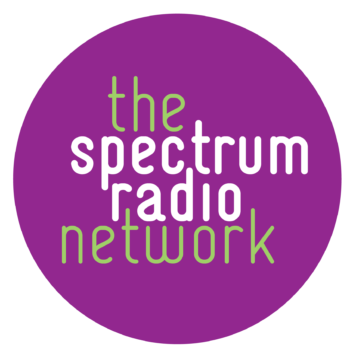 As for the future, Ogden says: “our ambition would be to develop more studios — to see more international stations using our facilities for broadcast across London and around the world. And we want to help podcasters and marketing companies with studio hire, outside broadcasts and radio promotion days. We’re really looking forward to the next stage of Spectrum’s development.”
As for the future, Ogden says: “our ambition would be to develop more studios — to see more international stations using our facilities for broadcast across London and around the world. And we want to help podcasters and marketing companies with studio hire, outside broadcasts and radio promotion days. We’re really looking forward to the next stage of Spectrum’s development.”










